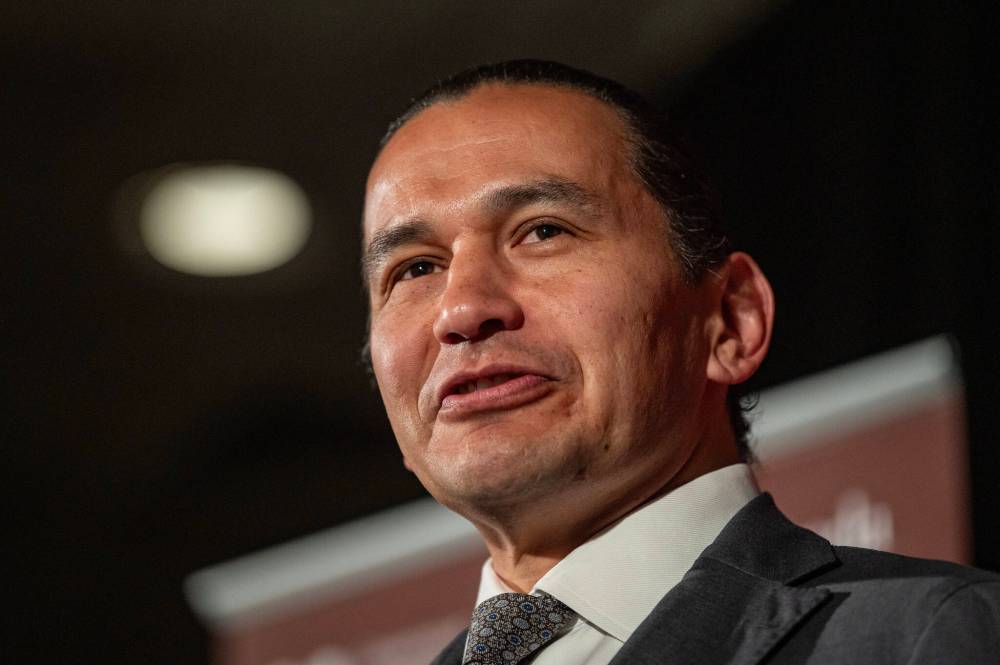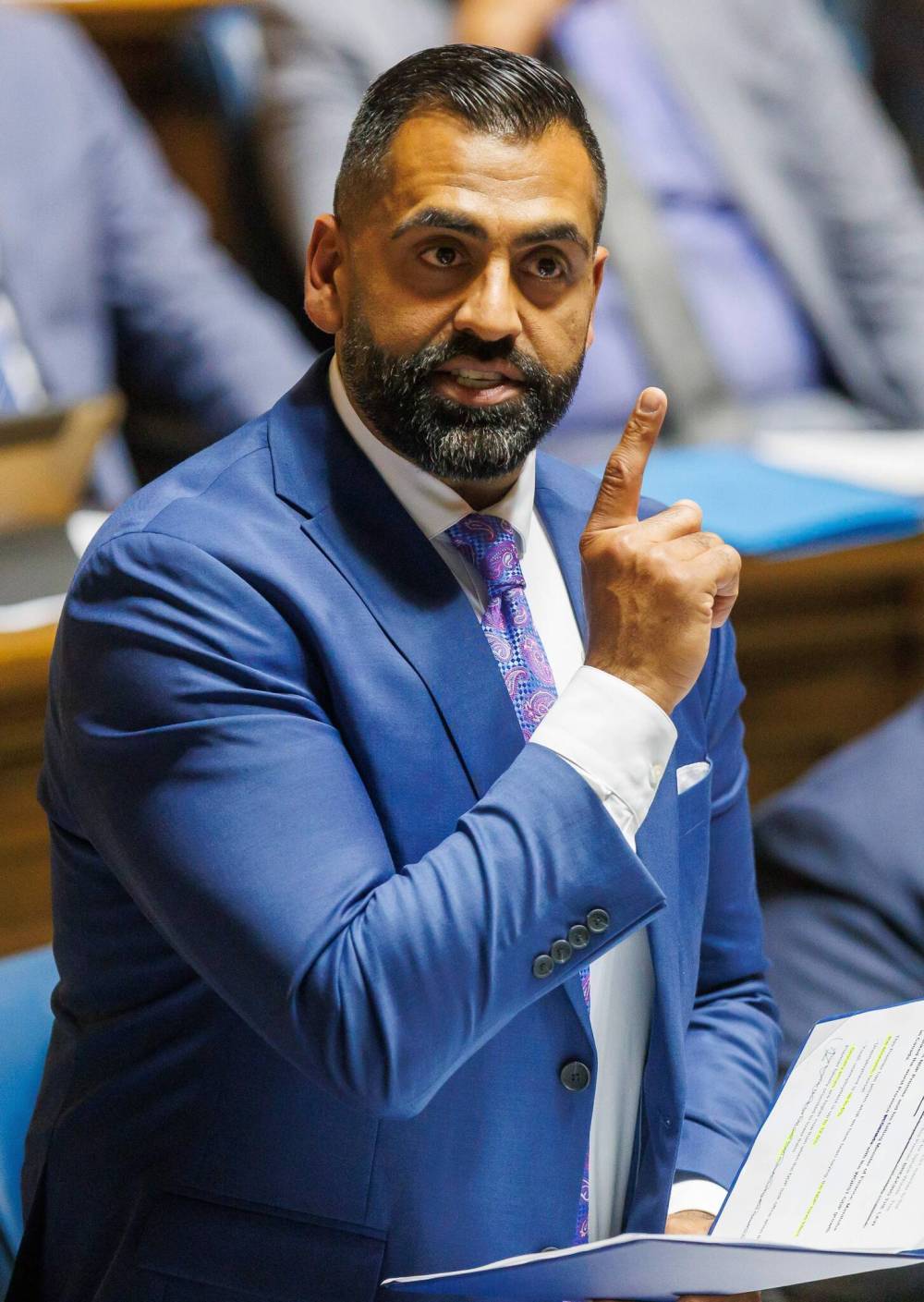Kinew blasts top court’s child-porn ruling
Advertisement
Read this article for free:
or
Already have an account? Log in here »
We need your support!
Local journalism needs your support!
As we navigate through unprecedented times, our journalists are working harder than ever to bring you the latest local updates to keep you safe and informed.
Now, more than ever, we need your support.
Starting at $15.99 plus taxes every four weeks you can access your Brandon Sun online and full access to all content as it appears on our website.
Subscribe Nowor call circulation directly at (204) 727-0527.
Your pledge helps to ensure we provide the news that matters most to your community!
To continue reading, please subscribe:
Add Brandon Sun access to your Free Press subscription for only an additional
$1 for the first 4 weeks*
*Your next subscription payment will increase by $1.00 and you will be charged $20.00 plus GST for four weeks. After four weeks, your payment will increase to $24.00 plus GST every four weeks.
Read unlimited articles for free today:
or
Already have an account? Log in here »
WINNIPEG — Premier Wab Kinew condemned a Supreme Court of Canada ruling that rejected mandatory minimum sentences for possessing child pornography, saying not only should pedophiles serve jail time, “they should bury you under the prison.”
The high court ruled Friday that one-year mandatory minimum jail sentences for accessing or possessing child pornography are unconstitutional.
“This is, like, one of the worst things that anyone can do,” Kinew said, referring to child pornography at an unrelated event Monday.

Premier Wab Kinew said convicted offenders who access child sexual abuse images and video should face even harsher punishments than mandatory minimum sentences. (The Canadian Press files)
The court said that although jail sentences contribute to the objectives of denunciation and deterrence, they also remove judges’ discretion to impose alternatives to imprisonment when appropriate.
Kinew said convicted offenders who access child sexual abuse images and video should face even harsher punishments than mandatory minimum sentences.
“You shouldn’t get protective custody. They should put you into general population, if you know what I mean. Skinners — this is the worst,” he said, using a prison term for pedophiles and sex offenders.
Kinew said he sides with conservatives — Ontario Premier Doug Ford, Alberta Premier Danielle Smith and federal Conservative Leader Pierre Poilievre — in denouncing the top court’s ruling.
“I think I’m on the same page as as they are,” he said. “I think the average person out there hears an announcement like this and just kind of shakes their head.”
Later, during question period at the legislature, Kinew said if it were up to him, he’d “invoke the code on the streets, and release pedophiles into prisons’ general population and see what happens.”
In a 5-4 decision last Friday, the Supreme Court found the mandatory one-year sentence for possession or accessing child sexual abuse materials violated the Charter of Rights and Freedoms because of certain hypothetical scenarios where such a sentence would be disproportionate.
“Not only should you go to prison for a long time, they should bury you under the prison,” Kinew said.
The Criminal Defence Lawyers Association of Manitoba’s Chris Gamby said comments from the province’s top elected official suggesting that he supports jailhouse or vigilante justice are “an affront to this system and an affront to the rule of law, in general.”
Gamby said he’s concerned that populist leaders are riling up the public when the majority of sentences for possessing and accessing child sexual abuse images are typically well over the one-year minimum struck down by the high court justices who explained why they did it.
Supreme Court Justice Mary Moreau wrote that when mandatory minimums apply to a broad range of situations, they can impose a grossly disproportionate sentence on some offenders.
“They capture both the well-organized offender who, over the years, has accumulated thousands of files showing prepubescent victims, and the young 18-year-old offender who, one day, keeps and views a file showing a 17-year-old victim that was sent to the offender without them having requested it,” wrote Moreau.
“All they’re saying is we can see a reasonable hypothetical where the mandatory minimum might not be appropriate,” Gamby said.
“One thing I like about Mr. Kinew is he does lead with his heart a fair bit. Obviously, the conduct that we’re discussing is objectionable. But we have a system in place — this is what we do in civilized societies and it should be respected. The discussion right now about justice is very much about hearts, it’s not about minds.”

Tory Leader Obby Khan took Kinew to task after question period for invoking "vigilante street justice." (Mike Deal/Winnipeg Free Press files)
Responses to the high court decision that Gamby has reviewed on popular social media sites are a concern, he said.
“Nobody is paying attention to what any of these things mean or where it’s going,” he said. “I get the impression people don’t understand what was decided there and why. I wish (Kinew) could see that maybe now’s the time to turn the temperature down.”
Tory Leader Obby Khan took Kinew to task after question period for invoking “vigilante street justice.”
“That’s not leadership,” Khan told reporters, noting Kinew has also criticized key justice system members, including judges and defence attorneys. “That’s not being a serious premier.”
Khan urged Kinew to ask the federal government to invoke the Canadian Charter of Rights and Freedoms’ notwithstanding clause to override the Supreme Court decision on mandatory minimum sentences for those accessing or possessing child sex abuse images.
Kinew said his government introduced Bill 50 — the Constitutional Questions Amendment Act — to protect the rights of Manitobans.
“This is why when we brought forward Bill 50,” he said. “We have this ability to use a notwithstanding clause. So, I call on people to support Bill 50 — a reasonable way to operate under our current constitutional framework here in Canada, but in this case, to take action.”
The bill would require that any proposed provincial legislation that invokes the notwithstanding clause — a provision that allows federal or provincial governments to pass a law temporarily overriding some rights that is shielded from court intervention — be referred to the Manitoba Court of Appeal within 90 days.
The province doesn’t have the authority to use the notwithstanding clause in a situation such as the Supreme Court striking down mandatory minimum sentences, said University of Manitoba associate law professor Brandon Trask.
“Criminal law is under the exclusive jurisdiction of the federal government,” Trask said. “Parliament can take a look at the Supreme Court decision and create a new law that addresses the concerns about the decision. Provinces can’t.”
» Winnipeg Free Press, with files from The Canadian Press
